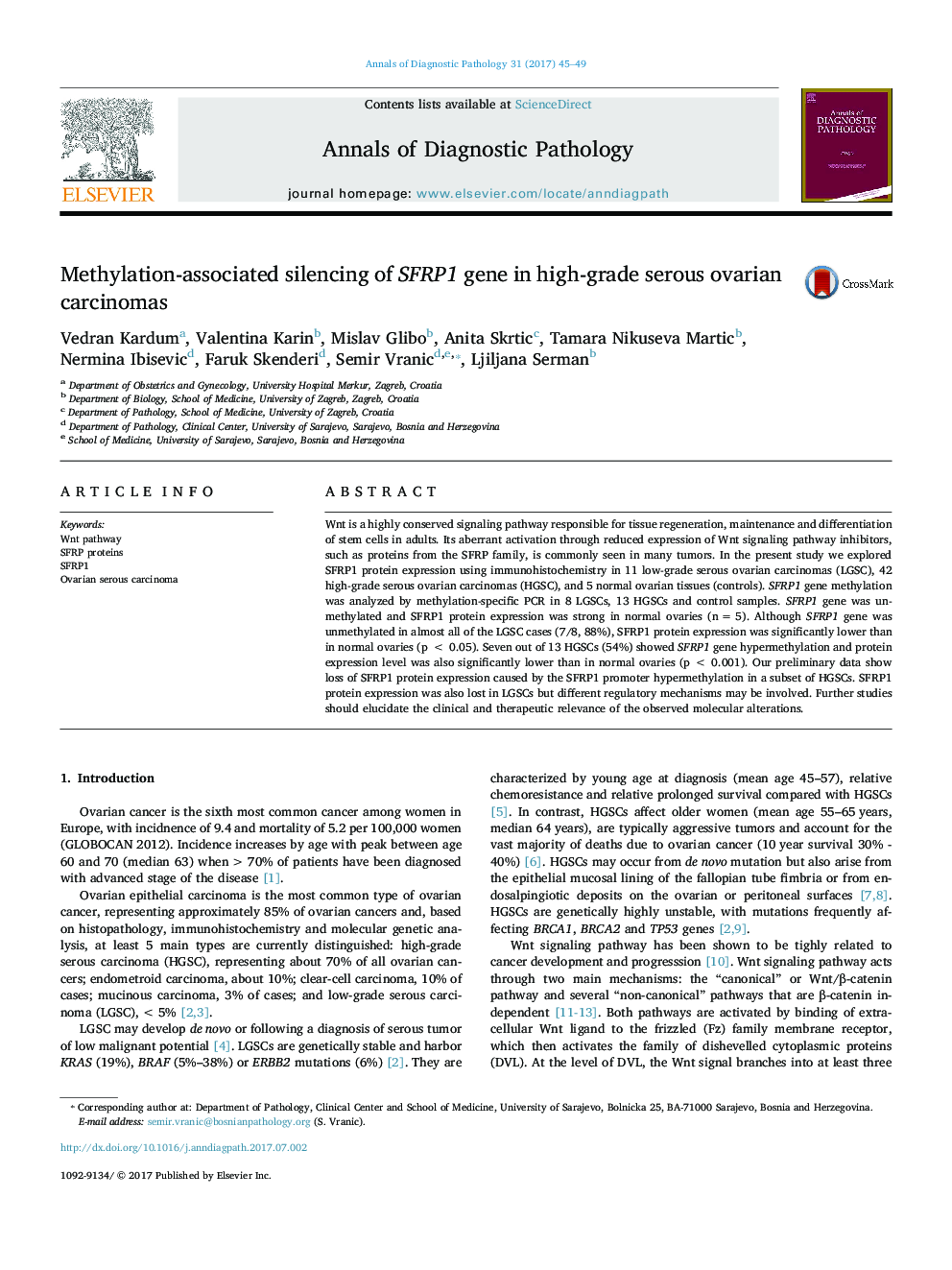| Article ID | Journal | Published Year | Pages | File Type |
|---|---|---|---|---|
| 5715866 | Annals of Diagnostic Pathology | 2017 | 5 Pages |
â¢Reduced expression of Wnt signaling pathway inhibitors, such as SFRP family members, is commonly seen in many tumors.â¢In a subset of high-grade serous ovarian carcinomas loss of SFRP1 protein is caused by the SFRP1 promoter hypermethylation.â¢SFRP1 expression was also lost in low-grade serous ovarian carcinomas, but by different regulatory mechanisms.
Wnt is a highly conserved signaling pathway responsible for tissue regeneration, maintenance and differentiation of stem cells in adults. Its aberrant activation through reduced expression of Wnt signaling pathway inhibitors, such as proteins from the SFRP family, is commonly seen in many tumors. In the present study we explored SFRP1 protein expression using immunohistochemistry in 11 low-grade serous ovarian carcinomas (LGSC), 42 high-grade serous ovarian carcinomas (HGSC), and 5 normal ovarian tissues (controls). SFRP1 gene methylation was analyzed by methylation-specific PCR in 8 LGSCs, 13 HGSCs and control samples. SFRP1 gene was unmethylated and SFRP1 protein expression was strong in normal ovaries (n = 5). Although SFRP1 gene was unmethylated in almost all of the LGSC cases (7/8, 88%), SFRP1 protein expression was significantly lower than in normal ovaries (p < 0.05). Seven out of 13 HGSCs (54%) showed SFRP1 gene hypermethylation and protein expression level was also significantly lower than in normal ovaries (p < 0.001). Our preliminary data show loss of SFRP1 protein expression caused by the SFRP1 promoter hypermethylation in a subset of HGSCs. SFRP1 protein expression was also lost in LGSCs but different regulatory mechanisms may be involved. Further studies should elucidate the clinical and therapeutic relevance of the observed molecular alterations.
